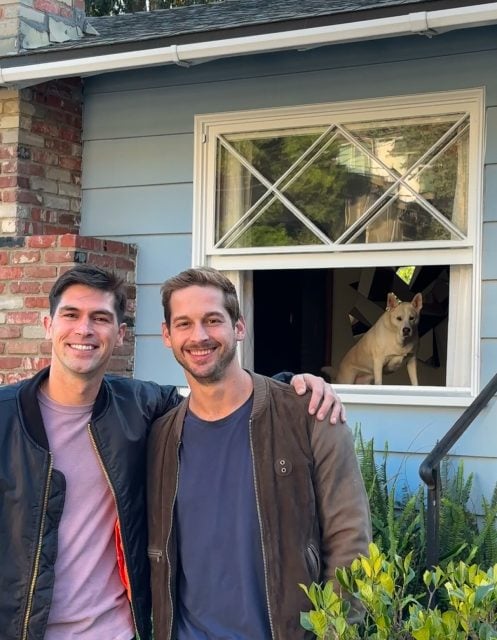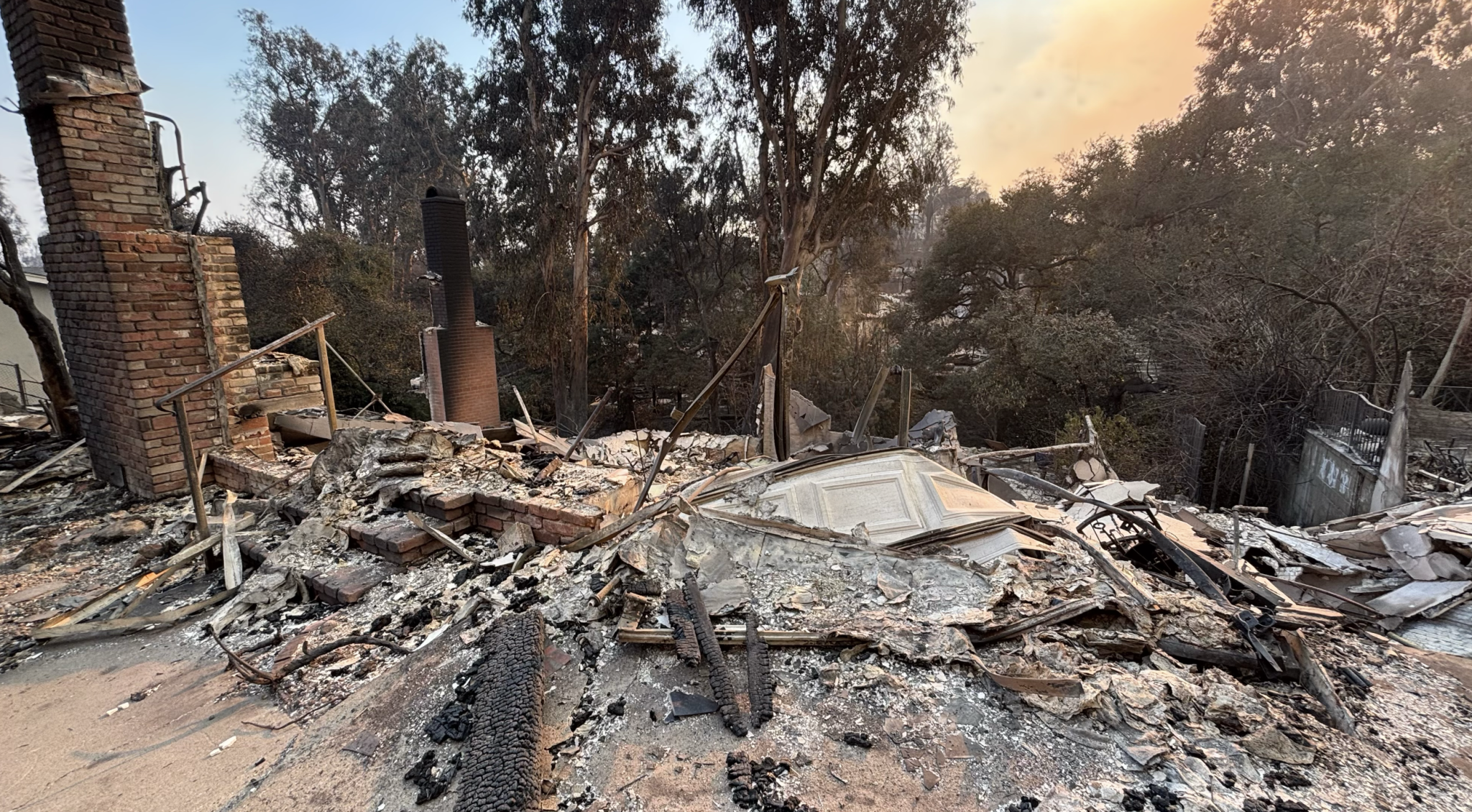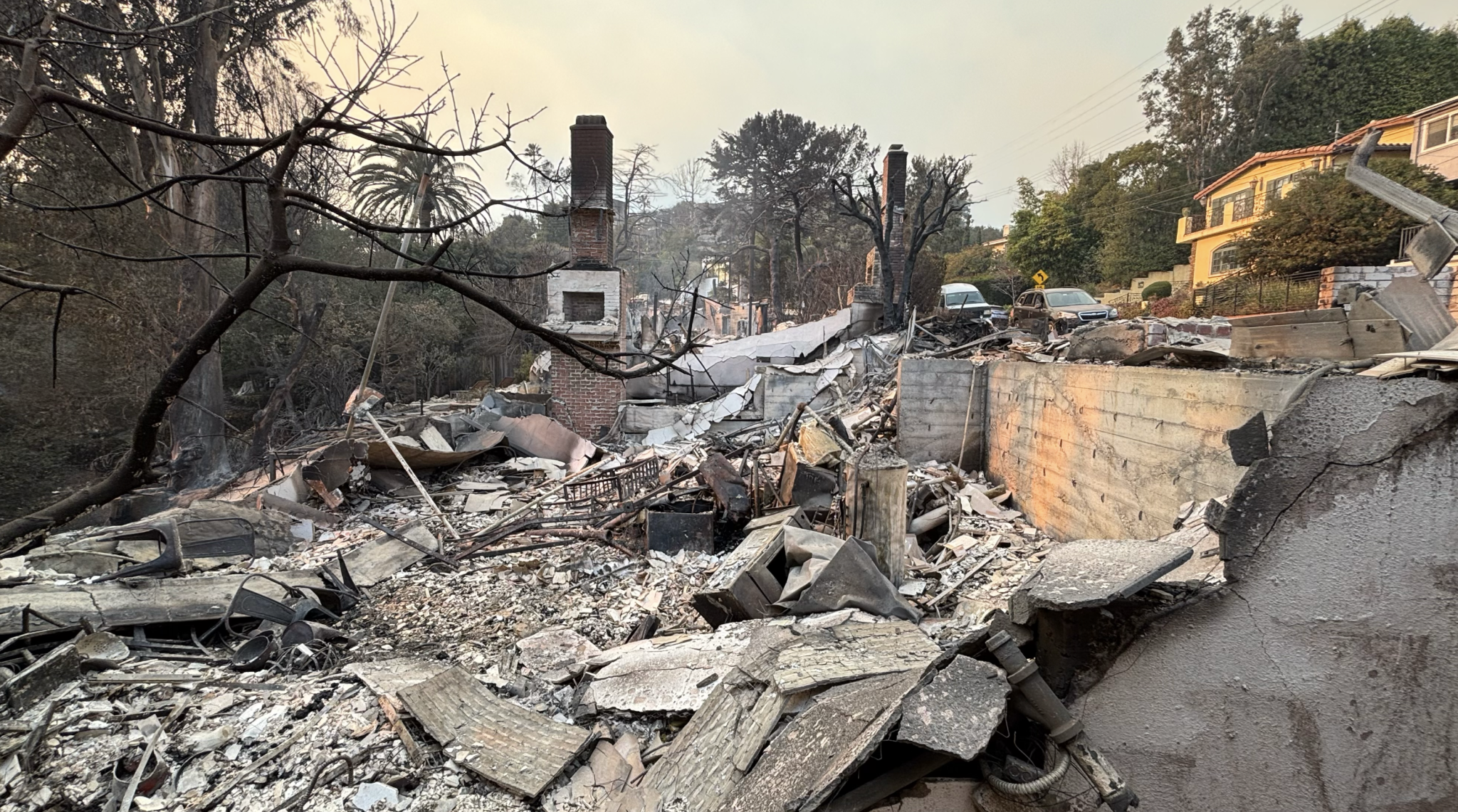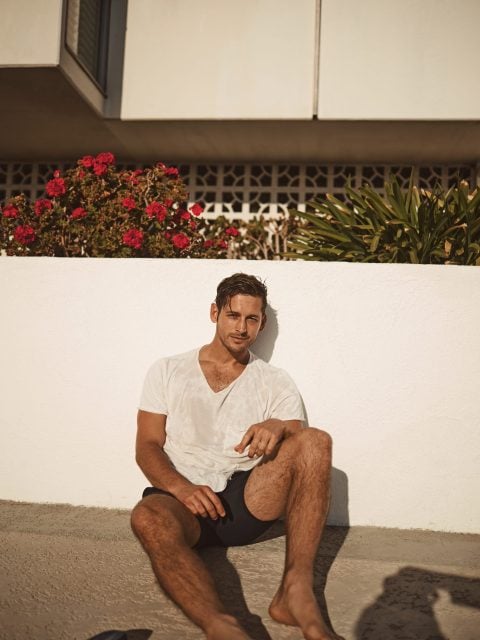For most people, the loss of a home is enough to send life into a tailspin. For queer filmmaker, actor, and activist Max Emerson, it was only the beginning of a whirlwind of personal transformation. In late 2024, Emerson and his longtime partner, Andrés Camilo, were already navigating a mutual separation when disaster struck: a massive fire swept through Los Angeles, destroying their shared home—and much more than just physical belongings.
Now, six months later, Emerson is opening up exclusively to Gayety about the losses, the lessons, and the major career pivot that’s taking him halfway around the world—and further than ever into purpose-driven work.
“The Fire Forced a Lot of Change Very Quickly”
“The fire turned out to be a catalyst,” Emerson says, reflecting on the destruction of the home he and Camilo once shared. “We were already beginning to separate. This just accelerated everything.”
Rather than dwell on the chaos, Emerson turned inward—and then outward. Shortly after the fire, he accepted a new role as Head of Media at Acasus, a global consultancy that works with governments in low-income countries to improve public health and education outcomes. It was, as he describes, “a huge opportunity” and one that came at just the right moment.
“I’m focusing entirely on work this year,” he explains. “Half my time is spent helping Acasus find its voice. The other half is spent co-founding a production company with my new boss to create media for the aid-delivery industry.”

Emerson’s new base? Switzerland—though he travels frequently for work. His dog, Sarge, now thrives in alpine nature. “It’s my barometer for whether a place is healthy or not,” Emerson laughs.
On Loss, Art, and the Cost of Starting Over
While Emerson has long embraced a minimalist, nomadic lifestyle—often joking that he’s the most “equipped” of his friends to handle homelessness—the loss of the house brought deeper emotional wounds.

“I really miss my plants and my garden,” he says. But the hardest part wasn’t his own loss—it was losing the physical art created by Camilo, who left his consulting job in 2021 to become a full-time visual artist. “Everything he created is gone,” Emerson says. “Even six months later, I could still cry if I think about it too long.”
Despite his detachment from materialism, Emerson admits the fire did reshape his relationship with comfort and routine. “I’ve noticed a strong desire for normalcy, for rest,” he shares. “Luckily, my new job comes with a furnished apartment. It has this incredibly healing energy.”
Redefining Rebuilding—and the Meaning of “Home”
Rather than trying to reconstruct what was lost, Emerson is embracing reinvention. “I’m not focused on rebuilding what’s gone,” he says. “I’m starting fresh.”

He’s also processing heartbreak with the kind of intentionality that often eludes public figures. “I’m proud of myself for not rushing through the grief,” Emerson says. “After the tears, I feel grateful for the clean start.”
That honesty extends to how he talks about the end of his nearly decade-long relationship. “Relationships almost always include breaking up,” he says. “Why would you teach someone how to fly a plane but not how to land?”
From Center Stage to Behind the Scenes
While many fans know Emerson for his online presence, film projects, or personal podcast (Stuff Every Queer Kid Should Know), he’s now focused on stories that don’t center him. “I’m decentralizing myself,” he says. “I want to focus on people who dedicate their lives to helping others in their communities.”
That mission is already taking form in a documentary he’s currently producing. “The tagline is ‘When things fall apart, look for the helpers,’” Emerson reveals. “The fil

m will also have a podcast component—we’ve recorded six to ten episodes so far.”
This pivot also means a hiatus for his previous podcast, but the evolution feels natural. “My audience is aging with me,” he notes. “They’re ready for deeper stories—beyond the survival guides and coming-out narratives.”
Finding Humor and Heart in a New Chapter
Despite the heavy topics he’s been navigating, Emerson says humor and vulnerability remain the core of his creative ethos. “Without humor, the story feels stale. Without vulnerability, it isn’t authentic,” he says.
Still, some things are off-limits now. “I’ve decided to keep my love life private moving forward,” he says. “But I’ll always bring my full self to the work.”
The decision marks a conscious boundary in a career that has often included personal transparency. For a generation of fans who admired the relationship between Emerson and Camilo—often cited as a beacon of queer love—this next phase may come as a surprise.
But Emerson is adamant that public perception shouldn’t dictate personal happiness.
“People change,” he says. “And truly loving someone means wanting them to be their happiest self—regardless of your own attachment.”
A New Kind of Legacy
When asked what advice he has for queer people navigating breakups, Emerson doesn’t hesitate. “It’s a fallacy to assume that a relationship that doesn’t last until death is a failure,” he says. “There’s not a second I regret my time with Andrés. If I had a time machine, I wouldn’t change a thing.”
As he looks toward the future, Emerson seems energized, if not a bit humbled. “I’ve never actually had a full-time job before,” he confesses. “This is the first time I’ve worked on long-term projects with a team to accomplish something truly significant. As boring as that may sound, I couldn’t be more excited.”
For someone whose life once played out on red carpets and Instagram stories, this quieter, purpose-driven chapter might surprise longtime fans. But if Emerson has shown us anything, it’s that reinvention isn’t just possible—it’s necessary.
After all, when things fall apart, Max Emerson looks for the helpers. And now, he’s becoming one of them.



